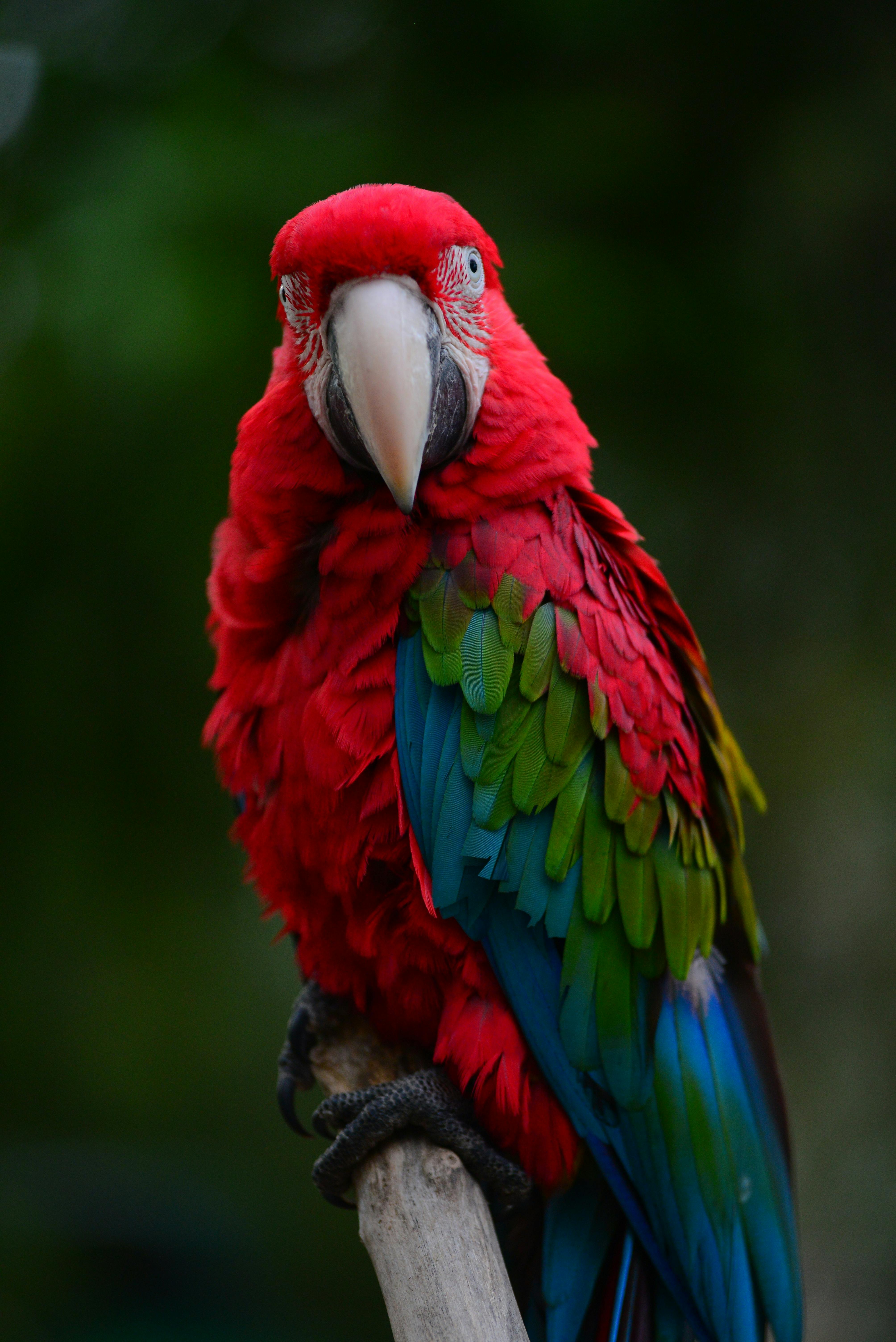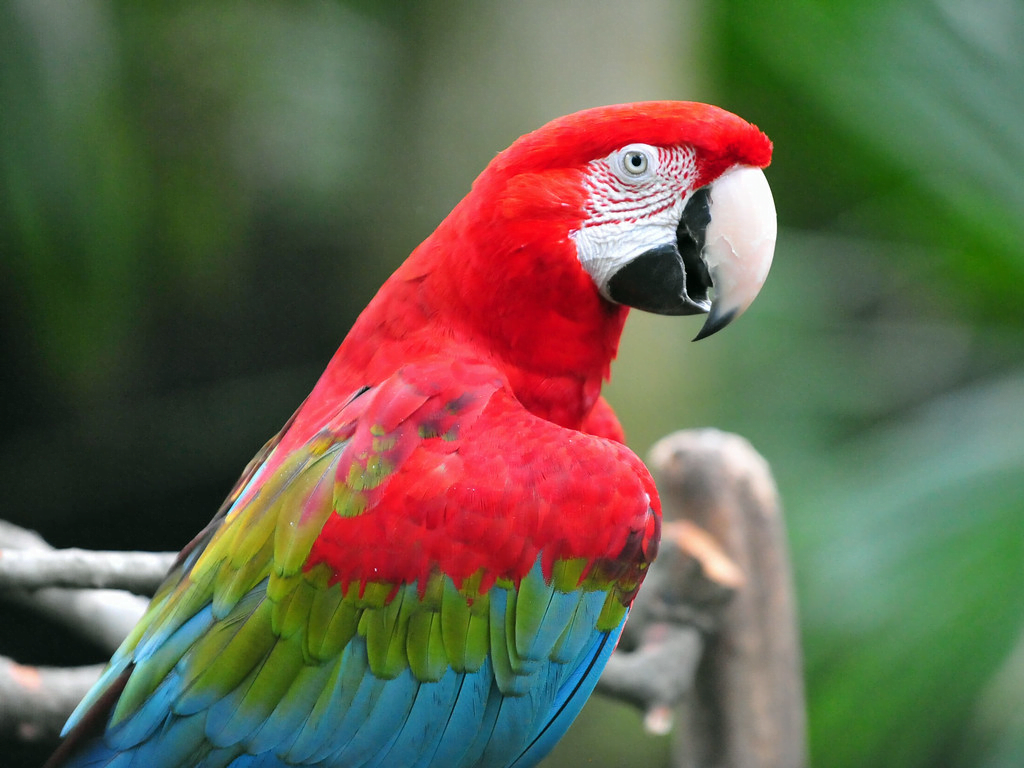Macaws, with their vibrant feathers and impressive wingspans, stand out as one of the most fascinating bird species in the avian world. These large parrots are not only known for their striking appearance but also for their intelligence and social behavior, making them popular among bird enthusiasts and pet owners alike. Delving into the lives of macaws reveals a complex world of vocal communication, strong pair bonds, and a remarkable ability to mimic human speech. However, their existence is threatened by habitat destruction and the illegal pet trade, highlighting the urgent need for conservation efforts. This post aims to explore the intriguing life of macaws, shedding light on both their natural behaviors and the challenges they face in the wild and in captivity.
Key Takeaways
- Macaws are a vibrant and diverse group of birds, each breed with its own unique characteristics, making them fascinating pets for bird enthusiasts.
- Proper health and care are crucial for a macaw’s longevity, including a balanced diet, regular veterinary check-ups, and mental stimulation.
- Living with a macaw requires a significant commitment of time and resources, as they need spacious environments and plenty of social interaction to thrive.
- Seeking advice from reputable breeders or considering adoption from a rescue organization can ensure you’re prepared for the responsibilities of macaw ownership.
- Understanding the specific needs and behaviors of macaws can greatly enhance the bond between you and your feathered friend, making the experience rewarding for both.
- Engaging with the macaw community through forums, social media, or local clubs can provide valuable support and advice for both new and experienced macaw owners.
Breed Overview
History
Macaws trace their roots back to the lush forests of Central and South America. They have been part of the native cultures for centuries, often revered and featured in art and mythology. These birds symbolize various concepts such as fertility, rain, and the transition between life and death in ancient lore.
The arrival of Europeans had a profound impact on macaw populations. Many species faced threats from habitat destruction and the pet trade. Today, conservation efforts are underway to protect these magnificent creatures. Their role in ancient mythology remains a testament to their deep connection with human societies across ages.
Physical Characteristics
Macaws are known for their vibrant plumage, displaying a rainbow of colors that captivate onlookers. Each species boasts its unique color scheme, ranging from the bright blues of the Hyacinth macaw to the fiery reds of the Scarlet macaw.
The size of these birds varies significantly among species. The Hahn’s macaw is one of the smallest, while the Hyacinth macaw stands out as the largest, reaching lengths up to 40 inches. Their strong beaks can crack nuts with ease, a testament to their adaptability in wild environments. Their zygodactyl feet—two toes pointing forward and two backward—aid in climbing and handling food.
Personality and Temperament
Macaws are highly intelligent birds with a sociable nature, making them sought-after companions. They thrive on interaction and can develop deep bonds with their owners. However, potential owners should be aware of their loud vocalizations; these are not quiet pets.
Their need for attention is matched by their playful demeanor. Macaws enjoy toys and games that challenge their intellect. This playful nature contributes to their ability to form strong bonds with humans, showcasing their complex emotional capabilities.

Health And Care
Common Health Issues
Macaws, with their vibrant feathers and sociable nature, face several health challenges. Psittacosis, also known as parrot fever, is a significant risk. This bacterial infection can spread to humans, causing flu-like symptoms. Owners should watch for signs of illness in their birds and themselves.
Without a well-rounded diet, macaws can suffer from nutritional deficiencies. Lack of vitamins and minerals can lead to various health issues, including weakened immune systems and poor feather quality.
Feather plucking is another concern. It often stems from stress or boredom. Creating a stimulating environment is crucial to prevent this behavior.
Dietary Needs
A balanced diet is essential for macaw health. It should include fruits, vegetables, nuts, and specialized pellets to meet all nutritional needs. Variety is key to preventing deficiencies and keeping these intelligent birds engaged with their food.
Certain foods are toxic to macaws. Avocado and chocolate can be deadly and should always be avoided. Owners must ensure that these items are never within reach of their curious pets.
Clean, fresh water must be available at all times for drinking and bathing. It aids in digestion and maintains feather health.
Exercise Requirements
Daily exercise is vital for a macaw’s physical and mental well-being. Flight or wing-flapping exercises help maintain muscle strength and cardiovascular health. These activities mimic natural behaviors, promoting overall wellness.
Interactive play sessions engage both the mind and body of a macaw. They foster a strong bond between the bird and its owner while ensuring the bird remains active and stimulated.
Providing a safe area for out-of-cage activities allows macaws to explore safely. Bird-proofing this space prevents accidents and injuries during playtime.
Grooming
Regular wing clipping is advised to prevent escapes or injuries within the home environment. While it limits flight, it keeps the bird safe when outside its cage.
Bathing or misting helps keep feathers in good condition by removing dust and other particles. This practice also mimics natural rainforest conditions, offering a sense of comfort.
Beak and nail trimming are necessary to prevent overgrowth that can lead to feeding difficulties or mobility issues. Professionals should perform these tasks to avoid harm to the bird.
Living with a Macaw
Training and Socialization
Early socialization is crucial for macaws. It helps them become well-adjusted pets and prevents aggressive behaviors. Owners should introduce their macaws to different people, sights, and sounds from a young age. This variety encourages adaptability.
Positive reinforcement training works best for teaching macaws tricks and commands. Rewards like treats or verbal praise make learning enjoyable for them. Consistency is key in this process. Regular, short training sessions yield the best results.
Consistent interaction strengthens the bond between macaws and their owners. Without it, these intelligent birds can feel neglected and lonely. Daily playtime and conversation are essential. They ensure a happy, healthy relationship.
Environment
Macaws need large, sturdy cages to live comfortably. Their powerful beaks can easily damage weak materials, so durability matters. The cage should be spacious enough for them to stretch their wings and move around freely.
Enriching the cage environment keeps boredom at bay. Toys, perches, and puzzles encourage physical and mental exercise. These items should be rotated regularly to maintain interest.
A stable environment is vital for a macaw’s well-being. The cage must be placed in an area free from drafts and extreme temperatures. Sudden changes can stress these sensitive birds.
Activities They Enjoy
Macaws love interactive games that challenge their intellect. Fetch and puzzle-solving are great ways to keep them engaged. These activities also strengthen the bond between bird and owner.
Teaching macaws to speak or mimic sounds provides mental stimulation. Many enjoy this activity immensely and can learn an impressive vocabulary.
Outdoor time in a secure aviary benefits macaws greatly. It allows them sunlight exposure for vitamin D synthesis and fresh air for respiratory health. Safety is paramount; the aviary must be escape-proof and predator-resistant.

Breeder Advice and Adoption
Choosing a Breeder
When looking to bring a macaw into your home, selecting a reputable breeder is crucial. This choice can impact not only the health but also the happiness of your future feathered friend. A responsible breeder prioritizes the well-being of their birds, ensuring they are healthy, well-socialized, and ready for a new home.
It’s essential to ask for health clearances for any bird you’re considering. These documents prove that the bird has been tested for common diseases that affect macaws. Also, make an effort to visit the breeding facility in person. This visit can tell you a lot about how the birds are raised and cared for.
Look for signs of well-socialized, healthy birds during your visit. These include active engagement with humans and other birds, as well as clean living conditions. Avoid breeders whose birds seem fearful or aggressive, as this could be a sign of poor socialization practices.
Adoption
Adopting a macaw from a rescue or sanctuary offers many benefits. One significant advantage is giving a second chance to a bird in need. Many macaws end up in rescues due to no fault of their own. Adopting can provide these birds with the loving home they deserve.
However, adopting requires thorough research to understand the specific needs and history of the macaw. Each bird comes with its own story, which can influence its behavior and care requirements. Be prepared to learn about your potential new pet’s past experiences and any special needs it may have.
Be aware of the potential challenges when adopting older birds with behavioral issues. Some rescued macaws may have developed bad habits or trust issues due to previous neglect or abuse. It takes patience, understanding, and sometimes professional training to help these birds adjust to a new home.
Misc.
Popular Names
Choosing a name for your macaw can be as fun as it is meaningful. Creative names inspired by their vibrant plumage, like “Sunny” or “Rainbow,” celebrate their stunning appearance. For those captivated by their dynamic personalities, names such as “Echo” or “Jester” are perfect fits. They reflect the macaw’s playful and sometimes mischievous nature.
Traditional names remain popular among macaw owners. “Paco,” “Lola,” and similar choices have stood the test of time. These names often carry personal stories or cultural significance, making them a favorite for many.
Fun Facts
Macaws are known for their longevity, often living up to 50 years or more with proper care. This makes them lifelong companions for those ready to commit to their care.
In the wild, they play a crucial role as seed dispersers. This activity helps in forest regeneration, showcasing their importance in natural ecosystems. Another fascinating aspect is their facial feather patterns. These patterns are as unique as human fingerprints, adding to their individuality.
Common Myths
Not all macaws share the same volume level; some species are indeed quieter than others. This debunks the myth that all macaws are loud and disruptive. It’s also worth noting that while they bring joy and color into homes, they require significant care and attention. This counters the belief that they are easy pets to maintain.
Another common misconception is about their diet. Macaws cannot eat anything; their diet needs careful management to ensure they receive all necessary nutrients without harm.
Most Similar Breed
When comparing macaws to other parrots, African Grey parrots come close due to their intelligence and longevity. However, differences between these two breeds stand out significantly in terms of temperament and appearance.
African Greys tend to be more reserved than the outgoing macaw. Their plumage, though beautiful in its own right, lacks the vibrant array of colors seen in macaws. This contrast highlights the unique beauty and character of each breed.
Read more about African Grey Parrots here
Summary
Owning a macaw offers a unique blend of challenges and rewards, from understanding their health needs to ensuring they thrive in their living environment. These birds demand dedicated care and attention, but the companionship they offer is unparalleled. The journey from choosing the right breeder or adoption option to integrating a macaw into one’s life is filled with learning opportunities. It emphasizes the importance of responsible pet ownership and the need for thorough preparation before welcoming such an intelligent and vibrant creature into a home.
The insights provided on breed overview, health care, living conditions, breeder advice, and miscellaneous considerations serve as a comprehensive guide for potential and current macaw owners. They highlight the essence of commitment and passion for ensuring the well-being of these magnificent birds. For those considering adding a macaw to their family, or seeking to enhance their knowledge on maintaining their bird’s health and happiness, further exploration and continuous education are encouraged.
Frequently Asked Questions
What is the average lifespan of a macaw?
Macaws typically live between 50 to 70 years, depending on their species, living conditions, and health care. Proper nutrition and regular veterinary check-ups can help maximize their lifespan.
How can I ensure my macaw’s health?
Ensure your macaw receives a balanced diet rich in fruits, vegetables, and high-quality pellets. Regular veterinary visits for check-ups and vaccinations are essential. Also, provide ample space for exercise and mental stimulation to prevent obesity and boredom-related behaviors.
What should I consider before adopting a macaw?
Consider the long-term commitment, as macaws have long lifespans. They require significant time for social interaction and training. Assess your living situation; macaws need large cages and areas to fly. Lastly, financial readiness for their diet, healthcare, and enrichment needs is crucial.
Can macaws live with other pets?
Macaws can coexist with other pets if properly introduced and supervised to ensure safety. However, their strong beaks pose a risk to smaller animals. Individual personality compatibility should also be considered.
What advice do breeders give about choosing a macaw?
Breeders recommend selecting a macaw species that matches your lifestyle. Consider the bird’s size, noise level, and activity needs. They also advise visiting the breeding facility to observe the bird’s health and behavior firsthand.
Is it better to adopt or buy a macaw from a breeder?
Adopting offers a second chance to birds needing homes and often includes support from rescue organizations. Buying from a reputable breeder ensures knowledge of the bird’s genetic history and early life care but may be more expensive. Evaluate both options based on ethical considerations and personal preferences.
What are common health issues in macaws?
Common health issues include feather plucking due to stress or boredom, obesity from poor diet or lack of exercise, respiratory infections, and psittacosis (a type of bacterial infection). Regular health checks can aid in early detection and treatment.






0 Comments